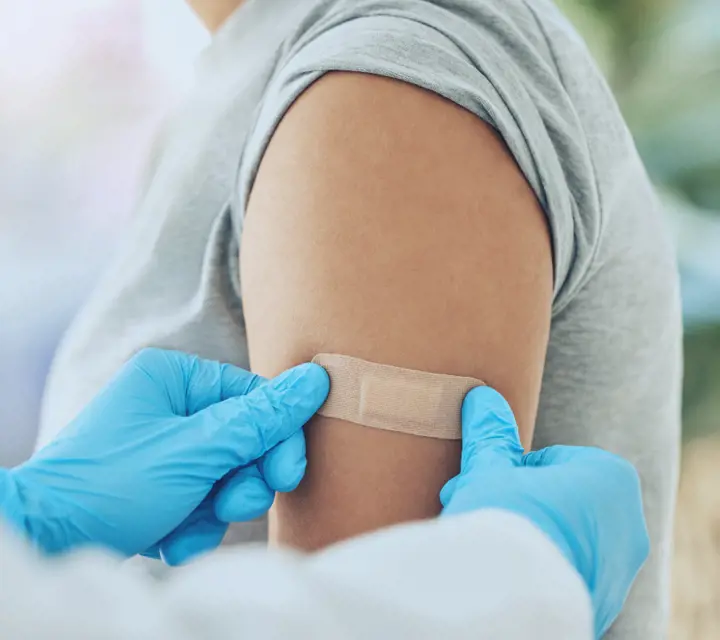04 March, 2024
More than 5 billion people around the world (3 out of every 4 people) have received mRNA vaccines to fight COVID-19, but there are some common myths about their safety. These are misleading and can make people hesitant to get these important shots.
Download a fact sheet with important information about mRNA vaccines.
Knowing the facts can help people keep themselves and their loved ones safe and healthy.
mRNA vaccines do not contain any active virus and cannot change a person’s DNA in any way.
- Instead, they are made of messenger RNA, which teaches your cells how to make an important piece of the coronavirus.
- After the mRNA delivers these instructions, your cells break down the mRNA and get rid of it.
- If you are exposed to the real virus later, your body will recognize the virus and know how to fight it off.
mRNA vaccines still work against COVID-19.
- The first mRNA vaccines worked very well at preventing serious disease, hospitalizations and deaths despite changes in the virus over time.
- Although the SARS-CoV-2 virus is always changing to try and outsmart our immune system, our bodies use the “head start” vaccines give us to plan for future infections.
- Like the flu shot, which is updated every year, we now have COVID booster vaccines that better match newer variants and improve our bodies’ ability to defend against current and future viruses.
mRNA vaccines do not cause birth defects, infertility or other problems related to pregnancy or childbirth.
- Safety studies with hundreds of thousands of pregnant persons during the pandemic have shown that receiving mRNA vaccines during pregnancy actually reduces the risk of complications like pneumonia, preterm birth and stillbirth.
- In addition to being safe, mRNA vaccines protect mother and baby from severe COVID-19 infections and related complications — just like other important vaccines given during pregnancy, which also help protect mothers and babies when they are the most vulnerable.
COVID-19 is much more likely to cause heart damage than the vaccine, especially among older people with medical conditions that put them at higher risk for a serious infection.
- Some people have concerns that mRNA vaccines cause heart problems. Early in the pandemic, there were rare instances of teenage boys and younger men experiencing heart inflammation, which happened about as frequently as being struck by lightning (about 1 in 10,000 vaccinations).
- Most of these people responded well to medicine and rest and felt better quickly.
- This small risk is even less now that we have safety recommendations like spacing out vaccines for young men and women. COVID-19 is much more likely to cause heart damage than the vaccine, especially among older people with medical conditions that put them at higher risk for a serious infection.
READ MORE

